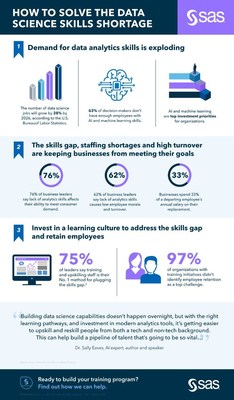In a report recently unveiled by the Boston Consulting Group (BCG), the spotlight has been cast on the impediments stifling AI growth. Termed as the cornerstone for future technological advancement, AI’s journey to fruition encounters obstacles ranging from an acute skills deficit to ambiguous investment strategies. These revelations come at a crucial juncture where the promise of Generative AI (GenAI) looms large on the horizon, yet the path to harness its potential remains shrouded in uncertainty.
The reality of AI growth
As businesses worldwide grapple with the transformative power of AI, a resounding sentiment of discontent resonates among global executives. A staggering 66 per cent express dissatisfaction with the progress made in leveraging AI and GenAI for anticipated productivity gains. Similarly, their African counterparts, comprising 65 per cent of surveyed executives, echo sentiments of frustration amidst faltering strides towards AI integration.
The crux of dissatisfaction among global executives stems from three primary challenges delineated in the BCG report. First of all, a glaring deficiency in talent and skills, cited by 62 per cent of respondents, underscores the pressing need for comprehensive workforce development initiatives. Also, an enigmatic landscape surrounding AI and GenAI roadmap coupled with opaque investment priorities confounds 47 per cent of executives, impeding strategic alignment. Lastly, a notable absence of a coherent strategy regarding responsible AI and GenAI implementation leaves 42 per cent of executives grappling with ethical and operational dilemmas.
Christoph Schweizer, CEO of BCG, underscores the urgency for proactive engagement with GenAI, advocating for experimentation and scalable learning initiatives. While apprehension tempts delay amidst rapid technological evolution, Schweizer urges CEOs to seize the initiative, emphasizing the dividends awaiting early adopters.
Rising investments, divergent priorities
Amidst the backdrop of dissatisfaction, a silver lining emerges in the form of escalating tech investments poised to fuel AI’s growth trajectory. With 71 per cent of global executives earmarking increased tech investments for 2024, a palpable surge signals a shift towards proactive engagement. However, within the African landscape, priorities diverge as 43 per cent of executives prioritize AI and GenAI as their top tech priority for 2024, trailing behind the global average of 51 per cent.
Despite the challenges, African executives exhibit a buoyant outlook towards AI’s potential. Nihmal Marrie, Managing Director at BCG South Africa, highlights African executives’ optimism, with more than half anticipating productivity gains exceeding 10 per cent from AI and GenAI. Yet, the road to realization is fraught with obstacles, including significant change management needs and gaping workforce upskilling disparities.
Navigating change in the AI landscape
Sylvain Duranton, Global Leader of BCG X, paints a portrait of transformative potential awaiting businesses at the vanguard of GenAI adoption. While pioneers stand poised to reap substantial productivity gains, others grapple with the inertia of indecision, awaiting regulatory clarity and workforce readiness.
As the AI growth narrative unfolds, a pertinent question looms large: How can businesses navigate the labyrinth of AI’s growth trajectory amidst skills deficits, investment ambiguities, and ethical imperatives? Amidst a landscape ripe with potential, the onus rests on leaders to chart a course towards tangible outcomes, leveraging AI as a catalyst for sustainable growth and innovation.





